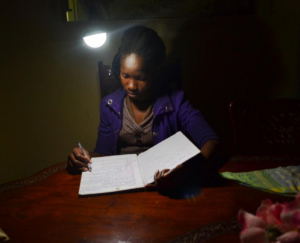Girl Child Education Fund GCEF
The Girl Child Education Fund -GCEF is a Nurses/Midwives Orphans’ Project supported by the International Council of Nurses (ICN) through, the Florence Nightingale International Foundation (FNIF).
The GCEF supports the primary and secondary schooling of girls under the age of 18 in developing countries whose nurse parent or parents have died. Support covers school fees, uniforms, shoes and books as well as emotional wellbeing of girls through psychosocial support.
Through the Girl Child Research Project, ICN/FNIF have been mobilising nurses, working through their member national nurses associations, to become advocates for healthy public policy for the girl child. This project has shown that young girls recognise and value the opportunities their education offers and that schools provide an important source of health information. The Girl Child Education Fund (GCEF) is a nursing initiative launched in May 2005 and it expands ICN/FNIF’s programme for the girl child with the support of nurses and nursing throughout the world.
The Fund seeks to address the educational needs of the orphaned daughters of nurses and contribute to the development of societies through facilitating education of girls and women. These girls are often denied schooling because of financial constraints from the loss of a parent and other family responsibilities that may arise in the absence of a parent or parents.
The Fund is administered and implemented at country level by national nurses associations and in the case of Zambia the Zambia Union of Nurses Organisation (ZUNO).

GCEF beneficiary of a solar lamp for studies
Communication and social media training
- Communication and social media training is a project supported by the Norwegian Nurses Organisation (NNO) from 2015-2016. The ZUNO and NNO consolidation and sustainability end of project evaluation report indicated that communication is the biggest challenge for ZUNO. Social Media identified as one of the tools that ZUNO can use to retain and increase membership. Social Media was embraced because for following reasons;
(i) It is considered an easy to use communication tool
(ii) Improves communications with reps and members
(iii) Gets the messages across to media and the rest of the world
(iv) Enhances union democracy by keeping people informed and engaged
(v) Make the ZUNO a more dynamic Organisation
Aim
To improve communication within ZUNO
Objectives
- To train ZUNO leaders and employees on importance of communication and its role in an organisation, devise a communication strategy and implementation plan for ZUNO.
- To enhance the trainees’ communication skills and train them as trainers in social media.
Three training workshops, two (2) days each, were held in the first and second quarter of 2016. A total of 28 participants that included management, Provincial supervisors and all POAs) were been trained. Each ZUNO provincial Office was provided with Internet modem and android tablets for use by the members, as the first step towards improving communication within ZUNO.
The monitoring and evaluation workshop for Provincial Office Assistants was held on 15 and 16 September 2016. The objective of the workshop was to monitor and evaluate progress made following the social media workshops held in the first and second quarter of 2016 as well as share and refine the draft social media policy and strategy.
Continuous professional development (CPD) GNC annual license renewal
Content coming soon
Leadership Capacity Building Project
Content coming soon
TB/MDR TB programme
Content coming soon
Nurses/midwives Mobile Library
Content coming soon
Nursing partnership for leadership and improvement; safer surgery saves lives
Leadership in Negotiations Project (LIN)
Content coming soon
Luapula/Arkeshus Education Fund
Content coming soon
